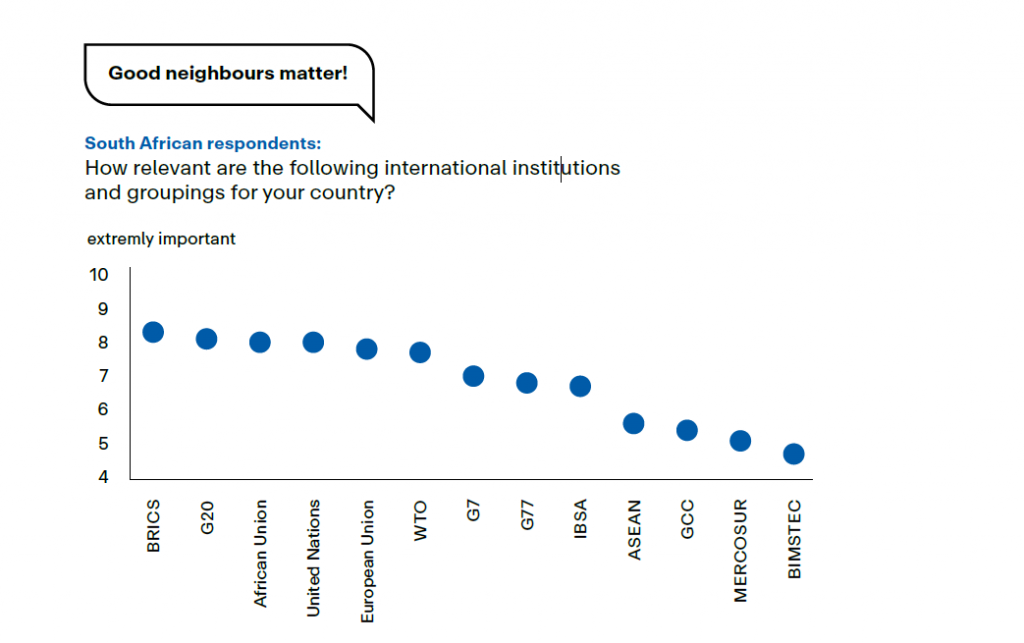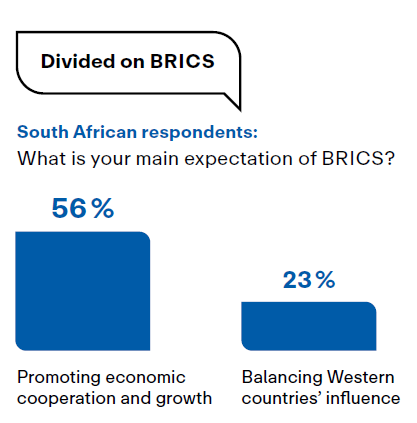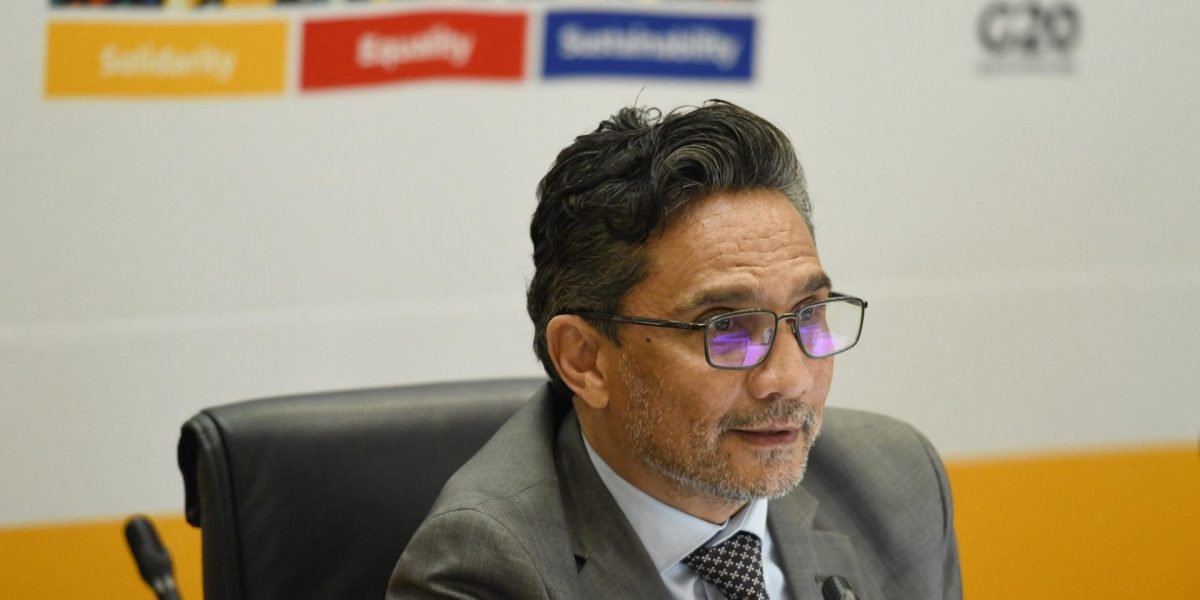At the Rio Leaders’ Summit in late November 2024, Brazil’s President Luiz Inácio Lula da Silva passed the baton of the G20 presidency to South Africa’s President Matamela Cyril Ramaphosa. This marks the first time that an African country would lead the G20 since the summit was elevated to a heads of state and government meeting in 2008. South Africa’s presidency is the last of a four-year sequence in which developing countries have led the G20, following the presidencies of Indonesia (2022), India (2023) and Brazil (2024). When one looks further back, seven of the last ten G20 presidencies were held by emerging markets.
This historic cycle of presidencies is a reflection of the strategic role and increasing global influence that emerging markets now play. According to the International Monetary Fund, emerging markets members of the G20 contributed almost two-thirds of global growth in 2023. In addition, emerging economies are converging to guard multilateralism and are leading global efforts towards a fairer, more equitable and representative international order, with the United Nations at its centre. These countries have leveraged their membership in various global formations to amplify the voices of the developing world and to align and at times to assert, their interests in an effort to shape global governance and global policy-making. Under the theme ʻSolidarity, Equality, Sustainabilityʼ, South Africa seeks to harness global will and capabilities to confront the enormous challenges the world is facing. Its G20 presidency is guided by its strategic foreign policy pillars: national interest, the African agenda, South-South cooperation and multilateralism.
During its tenure, South Africa aims to consolidate the gains made by the three past G20 presidencies in driving the developmental and reform agenda. These like-minded emerging economies represent four distinct geopolitical regions of the world, are vibrant democracies with significant populations, and are arguably better suited to advance efforts at consolidating the emerging multipolar world. UN Trade and Development forecasts that world GDP will grow by $55 trillion in the next five years, 70% of which will come from the Global South, as will the lion’s share of population growth. This further legitimises the demands of emerging economies and the Global South to be fairly and proportionately represented in global political and economic decision-making structures such as the World Trade Organization, the International Monetary Fund, the World Bank, and the United Nations Security Council (UNSC). The inclusion of the African Union (AU) as the 21st member of the G20 at the New Delhi Leaders’ Summit in 2023 was a pivotal step towards ensuring that the forum is more representative, legitimate and inclusive. The AU’s membership has amplified Africa’s voice in global economic governance while ensuring that the development priorities of the continent and the Global South find expression firmly and permanently onto the agenda of the G20.

As a member, the AU will play a critical role in reinforcing and complementing South Africa’s assertion that it will use its G20 presidency to build on its record of embodying Africa’s aspirations, notably ʻAgenda 2063: The Africa We Want’.
Current confrontational approaches to multilateralism, compounded by geopolitical and geoeconomic dynamics, present challenges and opportunities for South Africa as it sits at the helm of the G20. The challenges include continued fragmentation within the G20 on how to respond to common problems such as growing public debt, the impact of climate change, unprecedented levels of inequalities between and within countries, and large and growing gaps in financing for sustainable development. In response, South Africa has set four priorities for its G20 presidency: strengthening disaster resilience and response; ensuring debt sustainability for low-income countries; mobilising finance for a just energy transition and harnessing critical minerals for inclusive growth and sustainable development.
In addition, three High-Level Task Forces – on inclusive economic growth, industrialisation, employment and reduced inequality; food security; artificial intelligence, data governance and innovation for sustainable development – will be established. To address the debt issue, South Africa has also decided to establish a Cost of Capital Commission aimed at investigating the issues that impair the ability of low- and middle-income countries to access sufficient affordable and predictable flows of capital to finance their environmentally responsible and social inclusive development plans. This is critical issue for developing countries, especially those in Africa. Within only five years to go to fulfil the 2030 Agenda for Sustainable Development, South Africa has a mammoth task to steer consensus within the G20 to reinvigorate global action and commitment towards achieving its goals. South Africa seeks to reinforce and add momentum to implementing what the G20 has already agreed, while also taking concrete steps towards addressing the remaining, new and emerging threats to our future. The G20 has been referred to as the G7 plus BRICS, which makes it an ideal forum to reconcile ideological divides and policy divergences, especially between the Global North and the Global South. South Africa will use the convening power of the G20, as the premier forum for financial and economic cooperation, to reposition it as a catalyst for global consensus on issues affecting the global community.
As South Africa has done in the past and in many fora, it will thus play a bridge-building role during its presidency of the G20, overcoming geopolitical tensions and chasms among members, to reach consensus on priorities and deliverables. South Africa will take a pragmatic approach to its presidency, balancing an ambitious developmental agenda against the need to achieve consensus on key issues. The G20 represents 85% of the global economy, mostly through emerging economies; more than 75% of world trade and around two-thirds of the world’s population. Therefore, the role of the G20 in creating the foundation for global economic stability – a vital catalyst for economic development and implementing consequential global commitments such as the Pact for the Future, the 2030 Agenda, and indeed the continent’s blueprint, Agenda 2063: The Africa We Want – cannot be overstated.
South Africa and Germany, while being avid defenders of multilateralism and its institutions, share a common understanding that lack of reform remains a potential threat to the legitimacy of these institutions. While the global governance reform agenda has been mainly led by the Global South, influential developed countries such as Germany and Japan also remain without UNSC permanent membership. Therefore, the call for reform is not only in favour of the Global South but also of those who were less powerful in the aftermath of the Second World War. South Africa and Germany are committed to peaceful and inclusive societies; climate, energy and the just transition; sustainable economic development, training, and employment; and health and combatting pandemics. In the context of bilateral development cooperation, Germany has committed further funding equivalent of $281.1 million for the period from 2024 to 2026. It is thus an important ally in achieving South Africa’s G20 high-level deliverables and priorities. To further advance Africa’s interest within the G20, South Africa will build on the Germany’s G20 presidency’s Compact with Africa (CwA) deliverable by working with all G20 members, including Germany and the AU, to pursue a broadened and effective G20 CwA, which includes increasing the number of participating AU members. President Ramaphosa has emphasised the importance of cooperation, collaboration and partnerships – between individuals, groups, peoples and nations – as the foundation for progress.

South Africa also practises this cooperative culture and approach domestically, through the establishment of the Government of National Unity following the May 2024 elections. The government has demonstrated the potential to unite the nation and foster progress, allowing for meaningful discussions on accelerating structural reforms. South Africa’s optimistic economic prospects have ensured that it is increasingly positioned to play a leading role in shaping solutions to domestic and global challenges. The success of South Africa’s G20 presidency will to a large extent be determined by its ability to drive consensus on issues pertinent to Africa and to developing economies in general. It will do this by leveraging bilateral relations and membership of formations such as BRICS and promoting cooperation and collaboration between our partners in the Global South and the Global North.
This analysis was published in the Emerging Middle Powers Report 2025 by Körber-Stiftung and is available here.








